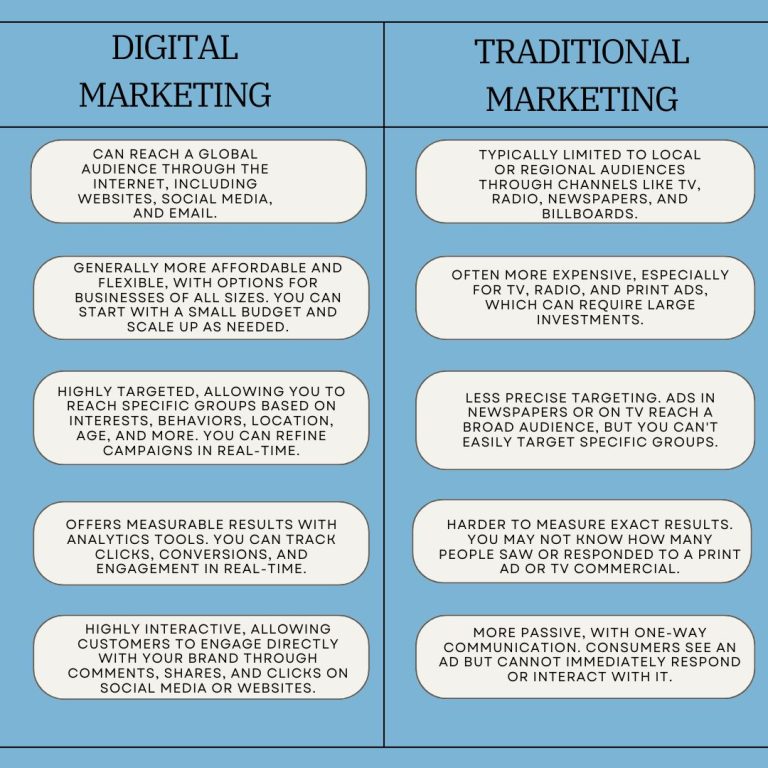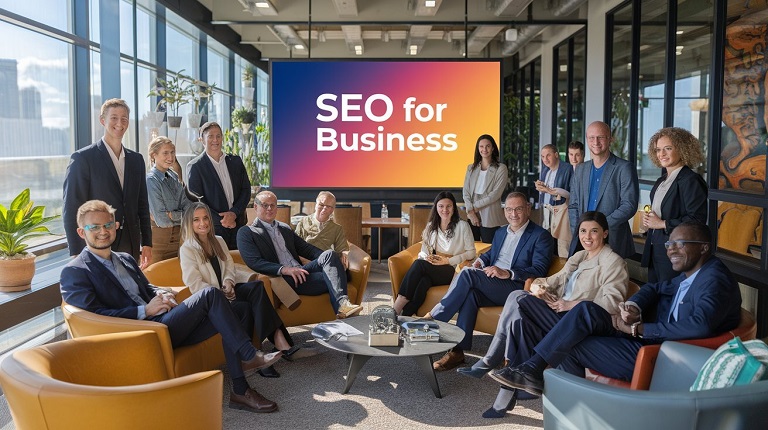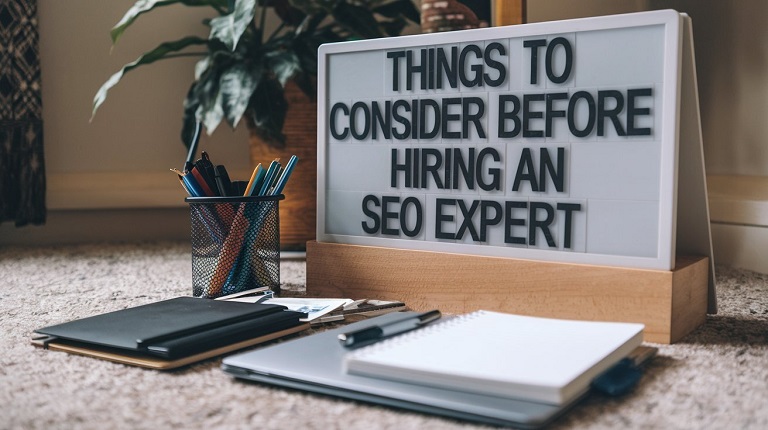What is Digital Marketing? The Ultimate Guide for Business Growth

“Ready to grow your brand? Let digital marketing do the heavy lifting. Did you know that businesses using digital marketing strategies experience 2.8x better revenue growth? In today’s digital-first world, understanding digital marketing isn’t just an option—it’s a necessity for growth.”
Brief Introduction: Digital marketing is the backbone of modern business strategies, enabling brands to connect with their audience, build trust, and drive sales. Whether you’re a small business owner or a corporate leader, this guide will break down what digital marketing is, why it matters, and how you can leverage it to grow your business. By the end of this post, you’ll have a clear understanding of digital marketing and actionable steps to get started.
What is Digital Marketing?
Digital marketing refers to all marketing efforts that use the internet or electronic devices to promote products, services, or brands. Unlike traditional marketing, which relies on offline channels like TV, radio, and print ads, digital marketing leverages online platforms such as search engines, social media, email, and websites.
- Key Characteristics of Digital Marketing:
- Global Reach: Connect with audiences worldwide. Whether you’re a local business or a global brand, digital marketing allows you to reach customers beyond geographical boundaries.
- Cost-Effective: More affordable than traditional marketing methods. For example, running a Facebook ad campaign can cost significantly less than a TV commercial but still reach thousands of potential customers.
- Measurable Results: Track performance in real-time using analytics tools. Tools like Google Analytics and Facebook Insights provide detailed data on how your campaigns are performing.
Example: A local bakery can use Instagram ads to target nearby customers instead of relying on expensive newspaper ads. By using location-based targeting, the bakery can ensure its ads are seen by people in the area who are most likely to visit.
What are the Types of Digital Marketing?
Digital marketing encompasses various strategies. Here’s a detailed breakdown of the most common ones:
- Search Engine Optimization (SEO):
- SEO involves optimizing your website to rank higher on search engines like Google. This includes using relevant keywords, creating high-quality content, and improving website speed and user experience.
- Example: A coffee shop owner could collaborate with an SEO expert to optimize their website for keywords like “best coffee shops near me” to attract local customers searching for coffee online.
- Pay-Per-Click Advertising (PPC):
- PPC involves running ads on Google or social media and paying only when someone clicks on your ad. It’s a quick way to drive traffic to your website and generate leads.
- Example: A software company could use Google Ads to appear at the top of search results for keywords like “best project management tools.”
- Social Media Marketing:
- Social media marketing involves promoting your brand on platforms like Instagram, Facebook, LinkedIn, and TikTok. It’s a great way to engage with your audience, build brand awareness, and drive traffic to your website.
- Example: A fitness coach could post workout videos on Instagram and use hashtags like #HomeWorkouts to reach a wider audience.
- Content Marketing:
- Content marketing focuses on creating valuable content (blogs, videos, infographics) to attract and engage your audience. The goal is to provide useful information that solves problems or answers questions.
- Example: A travel agency could write a blog post titled “10 Budget-Friendly Destinations for 2024” to attract travelers looking for affordable vacation options.
- Email Marketing:
- Email marketing involves sending personalized emails to nurture leads and retain customers. It’s a powerful way to stay in touch with your audience and promote your products or services.
- Example: An online store could send a discount code to subscribers on their birthdays to encourage them to make a purchase.
- Influencer Marketing:
- Influencer marketing involves partnering with influencers to promote your products or services. Influencers have a loyal following, making them effective at driving brand awareness and sales.
- Example: A beauty brand could collaborate with a makeup artist on Instagram to showcase their products.
- Affiliate Marketing:
- Affiliate marketing involves partnering with affiliates who promote your products and earn a commission for every sale they generate.
- Example: An online course platform could partner with bloggers who recommend their courses to their audience.
- Online Public Relations (PR):
- Online PR involves managing your brand’s reputation and building relationships with your audience through digital channels.
- Example: A tech company could issue a press release about a new product launch and share it on its website and social media.
- Video Marketing:
- Video marketing involves creating and sharing videos to promote your brand. Videos are highly engaging and can be shared on platforms like YouTube, Instagram, and TikTok.
- Example: A restaurant could create a video showcasing their menu and share it on social media to attract customers.
How Does Digital Marketing Differ from Traditional Marketing?
While both digital and traditional marketing aim to promote products or services, they differ significantly in approach, cost, and effectiveness.
- Key Differences:
- Reach: Digital marketing allows you to target a global audience, while traditional marketing is often limited to local or regional audiences.
- Cost: Digital marketing is more cost-effective, especially for small businesses. For example, running a Facebook ad campaign can cost significantly less than a TV commercial.
- Measurability: With digital marketing, you can track results in real-time using analytics tools. Traditional marketing methods, like billboards, don’t offer the same level of measurability.
Example: A local gym can use Facebook ads to target nearby fitness enthusiasts instead of relying on expensive radio ads. By using location-based targeting, the gym can ensure its ads are seen by people in the area who are most likely to join.
Digital Marketing VS Traditional Marketing

What is the Importance of Digital Marketing?
Digital marketing is no longer optional—it’s essential for businesses of all sizes. Here’s why:
- Wider Reach: Over 5 billion people use the internet worldwide, making it the largest marketplace. Whether you’re targeting local customers or a global audience, digital marketing allows you to reach them where they spend most of their time—online.
- Better Targeting: Digital marketing allows you to target specific demographics, interests, and behaviors. For example, you can show ads to people who have visited your website or interacted with your social media posts.
- Higher ROI: Digital marketing campaigns often deliver a higher return on investment compared to traditional methods. For example, email marketing has an average ROI of
- 42forevery
- 42forevery1 spent.
Case Study: A small online store increased its sales by 90% in 6 months by running targeted Facebook ads. By analyzing the data, the store was able to refine its campaigns and focus on the most profitable customer segments.
What are the Key Challenges in Digital Marketing?
While digital marketing offers numerous benefits, it also comes with its own set of challenges:
- Keeping Up with Trends:
- Digital marketing trends change rapidly, requiring constant learning and adaptation. For example, the rise of short-form video content on platforms like TikTok and Instagram Reels has forced businesses to rethink their content strategies.
- Tip: Stay updated by following industry blogs, attending webinars, and experimenting with new tools and platforms.
- Data Privacy Concerns:
- Stricter regulations like GDPR require businesses to handle customer data responsibly. This includes obtaining consent before collecting data and ensuring it’s stored securely.
- Tip: Work with legal experts to ensure your marketing practices comply with data privacy laws.
- High Competition:
- With so many businesses online, standing out can be difficult. For example, the average person sees 6,000 to 10,000 ads every day, making it harder to capture their attention.
- Tip: Invest in unique content and creative campaigns to differentiate your brand. For example, instead of just promoting your products, share behind-the-scenes stories or customer success stories.
What are Good Examples of Digital Marketing?
Here are some real-life examples of businesses that succeeded through digital marketing:
- Dollar Shave Club: Used a viral video to grow from a startup to a
- 1billioncompany.Thevideo,whichcostjust
- 1billioncompany.Thevideo,whichcostjust4,500 to produce, generated over 12,000 orders in the first 48 hours.
- Airbnb: Leveraged user-generated content and social media to build a global brand. By encouraging users to share their travel experiences, Airbnb created a community of brand advocates.
Small Business Example: A local gym used Instagram ads to increase membership sign-ups by 50% in 3 months. By targeting fitness enthusiasts in the area, the gym was able to attract new members without spending a fortune on traditional advertising.
FAQs About Digital Marketing
What is the best digital marketing strategy for small businesses?
Start with SEO and social media marketing. They are cost-effective and offer high ROI for small businesses. For example, a local bakery could use Instagram to showcase its products and attract nearby customers.
How much does digital marketing cost?
The cost of digital marketing depends on the strategies you use, the size of your business, and the platforms you choose. SEO and content marketing can be more affordable, while PPC advertising and influencer marketing may require larger budgets. The good news is that digital marketing is flexible, and you can adjust your budget based on your goals.
Before hiring an SEO expert, here are a few important things to consider
How long does it take to see results from digital marketing?
SEO can take 3-6 months to show results, while PPC and social media ads can deliver immediate traffic. For example, a well-optimized Google Ads campaign can start driving traffic within hours.
Can small businesses benefit from digital marketing?
Absolutely! Digital marketing is especially beneficial for small businesses because it allows them to compete with larger companies on a level playing field. With targeted strategies, small businesses can reach specific customer segments without spending huge amounts on traditional advertising.
How can I measure the success of my digital marketing campaigns?
Digital marketing is highly measurable. You can track performance using tools like Google Analytics, social media insights, and email marketing software. Metrics such as website traffic, click-through rates (CTR), conversion rates, and return on investment (ROI) will help you assess your campaign’s success.
Free SEO Audit
Are you looking to improve your website’s search engine performance but don’t know where to start? I offer a free 5-minute SEO audit to give you a quick snapshot of how your site is performing.


